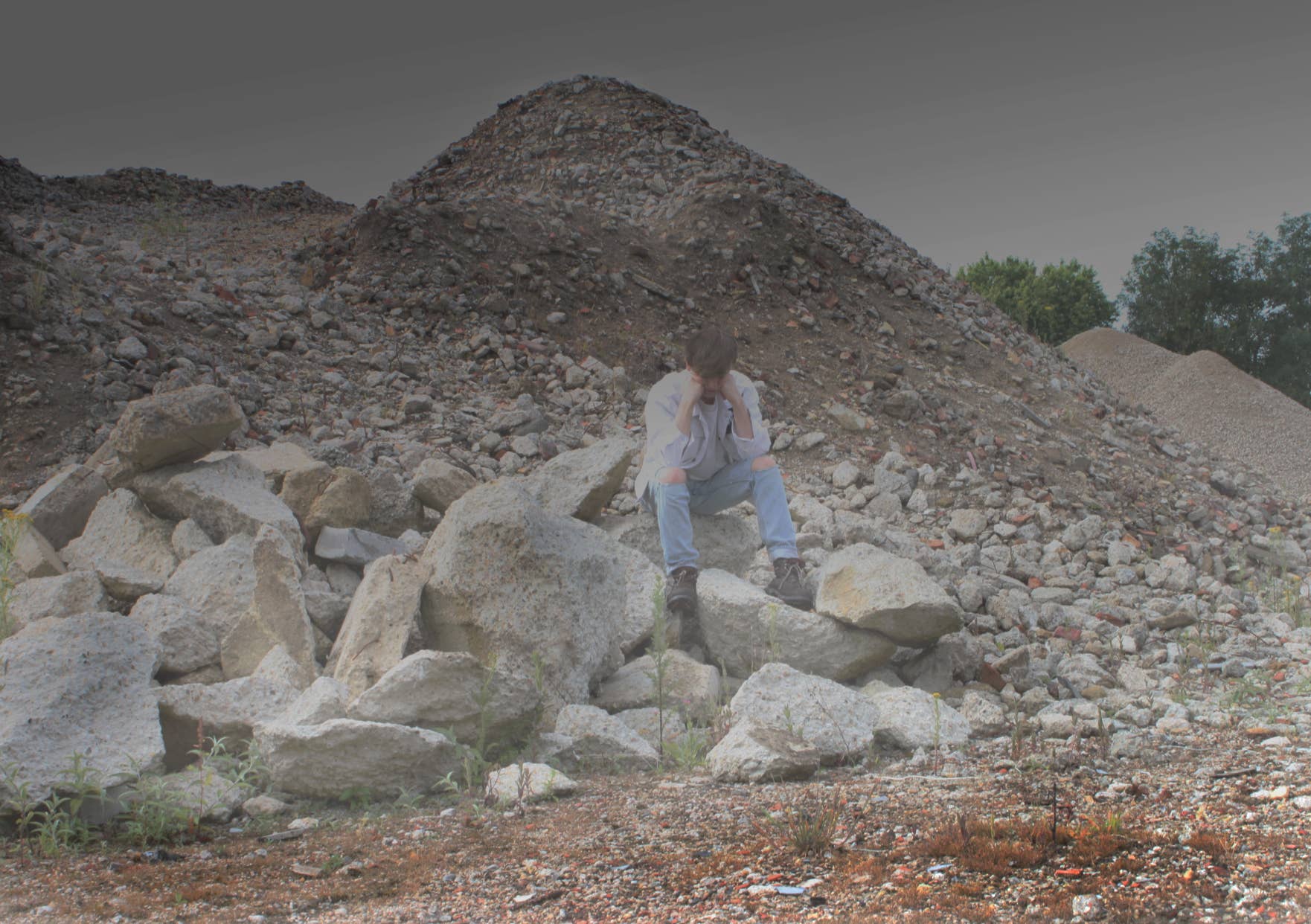
Jam City has accustomed us to sophisticated, cold productions—mastering perfectly the art of the dance tool. A sonic architecture made up of hand claps, perfect kicks, funky, futuristic loops and gun-popping samples, his forward-facing ideals were always destined for greatness. From Magic Drops (2010) through to Classical Curves (2012) and Club Constructions Vol. 6 (2013), Jack Latham demonstrated the ability to create club music that spoke to a community of people who needed more from the world. With such successes, most producers would simply serve the same soup again and again, wrapped up in the comfort of redundancy that can characterize contemporary music.
Yet, Jam City stepped out of his comfort zone with his new album, Dream A Garden, managing to call out capitalism on psychedelic evanescent funk. Complex recently sat with the enigmatic one to discuss the recording process of his latest LP, his influences, the way neoliberalism impacts our relationships, and what he would change in today's club environment.
These past two years, the Classic Curves sound has been replicated: pugnacious sense of rhythm has affected current dance music productions to the point you may have created a whole genre.
To be honest, I haven't really heard any of those producers... I'm just busy all the time, trying to focus on my own thing. But if people are into something I've done and want to try their own version, then I'm obviously flattered!
With your new album, spare backgrounds and mechanical sounds have been replaced by guitar melodies. You went from dance music to underwater funk, yet you made it clear there is no opposition between your first and second albums. What influenced the new sound showcased on Dream A Garden?
Dream A Garden came out about from changes in my life, and the lives of my friends, and it got to a point where there was a huge disconnect between what was going on in my life and the world around me—and the music I was making. You couldn't hear really hear any of that in it. So, subconsciously, I was slowing the beats down, writing poems in the margins, trying to "flood" my sound by using more delay, reverb, and not being so dry and cold with it. I source so much strength from listening to other people's music and experiencing their art, that I felt it was only right to try and put some of my own positive energy back in the world. When you hear the Jacka say, "I can't forget the pain; I write to remember", you're like: "Damn! What am I doing calling myself an artist? It's time to step it up." I was listening to a lot of punk and goth music; Siouxie and the Banshees, and Philly Soul composers for beautiful arrangements and lyrics. But I was still listening to rap, too—"Three In The Mornin'" by UGK actually inspired the production on "Black Friday". I was also reading Time Will Change by Bell Hooks and Jimi Hendrix by Dave Henderson. But, really, a lot of stuff played their part in the creative process.
Clubs are where people go when there's something "normal society" can't give them.
Dream A Garden is a statement album, telling stories about emotional fallouts in the neoliberal world, the same world depicted by Classical Curves with its glossy images of luxury possessions. Is Classical Curves, Dream A Garden—but with a certain cynism?
Yes, absolutely. In the past, I've been fascinated and repulsed by the glossy surface of neoliberal capitalism: luxury products, useless electronic. But after a while, you realise that this is only the tip of the iceberg. Dream A Garden is about learning to situate those luxury images within a larger context of violence, exploitation, and depression.
On this album, you manage to balance a suffocating atmosphere suggesting oppression and dreamy melodies. Was it done on purpose?
I think there's always been a balance in my tunes between hard and soft, so, I sometimes like to think of it as the daily struggle to keep it together when so much is trying to bring you down. It's not about creating a dream state, it's about trying to create a dream state, and often how difficult that is in our culture today. You can never get away from the noise, but you can try.
You're also experimenting with your voice. When did you get to the point where you decided to sing?
I was always humming melodies, writing things down, but it took a long time to become comfortable with my own voice. A lot of the record is about self-love, learning to be comfortable with your own voice, and how important and hard it can be. There's a sort of self-therapy that goes with music-making. Now, I love singing. Playing live, I tend to use a lot of reverb and phasing, and I love hearing it echo off the walls, distorting, bending.
Looking at some of the track titles—"Good Lads, Bad Lads", "Unhappy", "Crisis", "Proud"—and even the video for "Unhappy", do you think it can be interpreted as a bit manichean?
Our relationships to capitalism, like you see in the "Unhappy" video, are complex. There are many aspects of it that we are unavoidably complicit in. But I think it’s got to a point, now, where we need to draw the line and realise which side we're on. It's not about being either good or evil at all—it's so much more complicated. It's more like, we have a choice between misery and hope. In London, the gap between the super-rich and the poor is so big that when the world is THAT divided, it's pretty clear to know what side you're on; whose in power and who needs to be called out.
Lack of diversity has made club culture become more isolated.
You're part of the Night Slugs label, and have been for a number of years now. What were the first reactions of Bok Bok and fellow labelmates when they heard the album.
They got it! Bok Bok heard the record for the first time and was into it. I think anyone who knows me personally, it didn’t come as a shock to them. Night Slugs and Fade To Mind is definitely politically conscious. If you DJ, you have to know your shit. I've learnt so much from the crew about how to honour the music you love, rather than exploit it. All of this got me thinking about things on a deeper level. I hate this line of, "No politics on the dancefloor." Dance music has never NOT been political! It's always been transgressive, from disco to dub-reggae to grime. It's only in the last few years that "the underground" has got further and further away from those agendas. We need to ask why this is.
How did neoliberalism denounced by Dream A Garden materialise itself in the club.
Traditionally, underground music in the UK has operated as a space where people from different backgrounds can come together to create. This has been possible through cheap rents, squatting, maintenance grants to study in higher education, etc. When you don't have to spent all your time working, you're free-er to be creative. Since Margaret Thatcher, we've seen a systematic dismantling of the state where these things are possible. This has an effect on underground culture. What has historically been a place where people from less privileged background to make their own cultural spaces, has become predominately white, upper-middle class, and male. Lack of diversity has made club culture become more isolated. You have nothing to play off of, no new ideas from different perspectives, so you just endlessly compete with other boys about who can make the biggest banger or the most complicated production. It's exhausting! We need to remind ourselves that our job as artists, dancers, and writers, is to make an alternative safe space away from all that mess.
How would you idealistically change to make the club, but also this world, a better place?
It's a process. Love is a radical force, the antithesis of capital accumulation, because it's about sharing, not gaining. Self-love is probably the most important and hardest first step in this. As for clubs, I'd say clubs that weren't under pressure to make a huge amount of money would be a start—ones that were free to put on events for people with no names or booking clout. The DJ bill would have to be at least 50% female, with a no tolerance policy for certain behaviours on the dancefloor. And there would be a no micro-aggression policy on the door, small spaces, community, emotional transgression and good soundsystems reminding you that you have a body whilst transcending it. When I was a teenager, going to clubs for the first time made me feel free. Clubs are where people go when there's something "normal society" can't give them. It's a place to go when you feel alienated.

